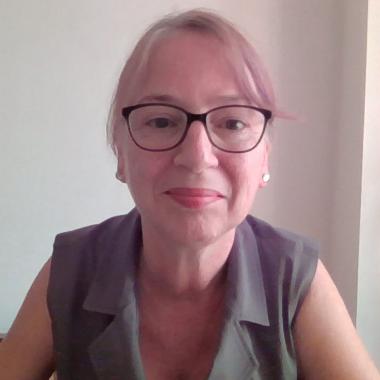

In this inaugural lecture Professor Miriam Dwek will describe her journey as a cancer biologist. Having worked in the field of complex sugar biology for the last three decades she will consider how the work she has been involved in has enhanced our understanding of this important disease. Cancer glycobiology studies have required new laboratory methods to enable meaningful findings. Prof Dwek will chart her contribution to these and touch on latest work adopting modern laboratory as well as computational approaches to understanding complex-sugar changes in cancer.
Committed to equity, diversity and inclusion this talk will also consider how far we have travelled in reducing discrimination in academic research and will look at how much further we still have to go.
The event will be followed by a drinks reception.

Professor Miriam Dwek
Miriam read a BSc in Applied Biology, in part-time mode, whilst working at Smith & Nephew Medical, Hull. On graduation she joined the biotech company Oxford Glycosystems as a Manufacturing Scientist. Oxford Glycosystems was the first spin-out company from the University of Oxford and subsequently became part of the CellTech group. Her PhD was undertaken at UCL Medical School in the Department of Surgery. After two periods of post-doctoral work she moved to the University of Westminster and set up her own lab where she has been based since 2002. Miriam established the Cancer Research Group at the University of Westminster in 2011 and the MSc Biomedical Sciences Cancer Biology Pathway.
She has been a passionate exponent of equality and diversity issues having juggled her career whilst having children and both herself and partner working full time. She established and led the Diversity and Inclusion Research Community for the University of Westminster from 2019-21. In this endeavour she brought together researchers working on this topic across the entire University of Westminster, to find out more about the recent work please click here. Miriam is the Director for the College for Research and Knowledge Exchange.
Her Cancer Research focus remains harnessing the glycosylation changes evident in cancer. Over the last two decades the bulk of her research has concentrated on investigating and developing improved biomarkers and improving the action of anti-cancer agents by investigating the role of glycosylation inhibitors as anticancer agents. The majority of the work has used breast cancer as an exemplar but also includes work on colorectal and prostate cancer. She has established 3D models of cancer under fluid flow and pressure as a platform technology for testing cancer drugs and cell behaviour. She has extended her work to include multidisciplinary studies including a major focus on the role of diet and behavioural factors on breast cancer risk and outcomes.

